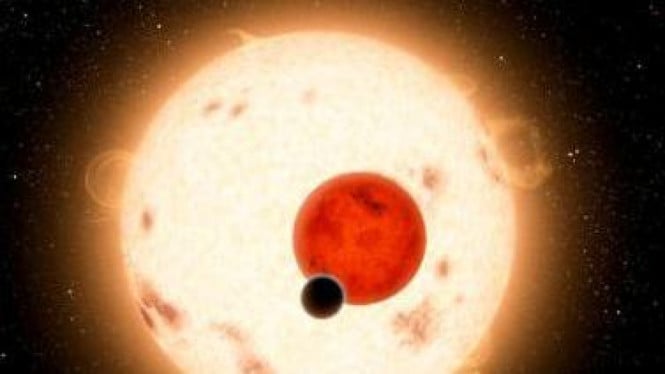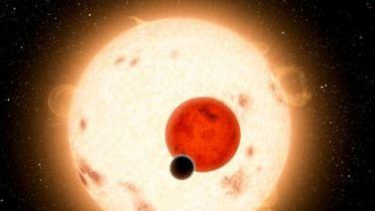The Twin Suns Potentially Suitable for Life
- NASA / Daily Mail
VIVA – A study has examined the evolution of the orbits of planets over a billion years around two stars. The results suggest that a 'twin suns' system might be suitable for life. One of the biggest questions in the search for life outside our solar system is what kind of stars can support life.
We know that solitary G-type stars can provide it, such as life on Earth. However, that only covers a small fraction of the galaxy's stars. Unless they are more diverse, galaxies can be very lonely places. Red dwarf M-type stars are the most
At the recent American Astronomical Society conference, undergraduate Michael Pedowitz and Dr. Mariah MacDonald of the College of New Jersey turned their attention to the second biggest question: whether life can survive on a planet warmed by a pair of suns.
Sinar Matahari.
- Pixabay
Some binary systems are so widely separated that a planet orbiting one star would be barely affected by the other. Prospects for life here seem good. The more interesting case is circumbinary planets (CBPs), popularly known as Tatooine-like worlds, where the stars are so close together that a planet would need to orbit both to be at a safe distance.
“Our results confirm that planets orbiting close to a highly eccentric binary quickly become unstable,” the pair reported. Even if such a planet avoided being burned up in one of the stars, the wild temperature swings it would experience prospects for life, except perhaps deep underground.
However, nearly all planets (87%) with semimajor axes at least three times greater than the binary apocenter are stable, regardless of the binary mass ratio or eccentricity.
Orbital stability is insufficient, however. Two-thirds of the planets the pair modeled would be either too hot or too cold for liquid water at their surface throughout the orbit.
Nevertheless, 15 percent of the stable planets the pair modeled had habitable temperatures for at least 80 percent of their orbit. The percentage may seem too low but the team estimates that the oceans and atmosphere would not stabilize the temperature during a short pass near the star.
“We find that potentially habitable CBPs tend to orbit close to binaries with small separation distances, but rarely orbit around binary stars that are similar in mass, as stable planets around such binaries are too cold,” the pair write.
In other words, we can forget about Tatooines or Magratheas orbiting “twin suns”. Instead, planets like these would have one large-sunlike star and one much fainter secondary.
Existing detection methods make it difficult to search for planets in binary systems, circumbinary or not, which may be why scientists have yet to find a planet, even near Alpha Centauri.



























